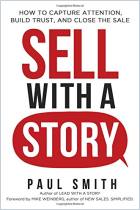Únase a getAbstract para acceder al resumen.

Únase a getAbstract para acceder al resumen.
Annette Simmons
The Story Factor
Inspiration, Influence, and Persuasion Through the Art of Storytelling
Basic Books, 2006
¿De qué se trata?
Don`t recite facts – use narrative. Tell stories to persuade, influence, enlighten and connect with people`s emotions.
Recommendation
Annette Simmons is thoroughly convincing in her assertion that the best way to influence and inspire others is to tell stories. Unfortunately, she is a bit heavy-handed on the "why" of storytelling, which she explains in depth in every chapter, and a shade light regarding "how" to accomplish her lofty goals. Simmons explains that telling people an engaging story is far more persuasive than reciting facts and figures, or showing a PowerPoint presentation. To illustrate her position, Simmons uses good stories and parables as examples. She describes the six categories of stories you can use to connect with and influence people, and she offers suggestions on how to become a prolific, entertaining storyteller. This is not a typical "how-to" book with lists of things to do, but it is instructive and useful. getAbstract recommends it to anyone who is interested in the art of persuasion or who loves a good yarn.
Summary
About the Author
Annette Simmons is the founder of a consulting company that specializes in helping organizations increase their revenues through collaborative behavior. She is a public speaker and the author of Territorial Games and A Safe Place for Dangerous Truths.



















Comment on this summary